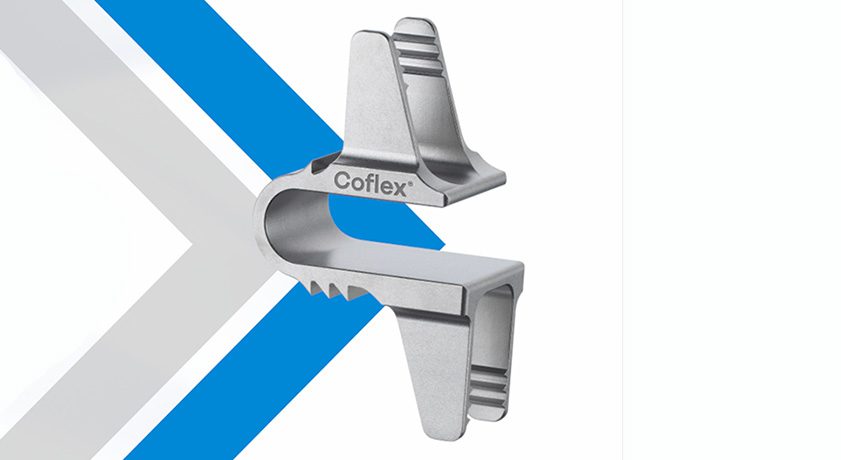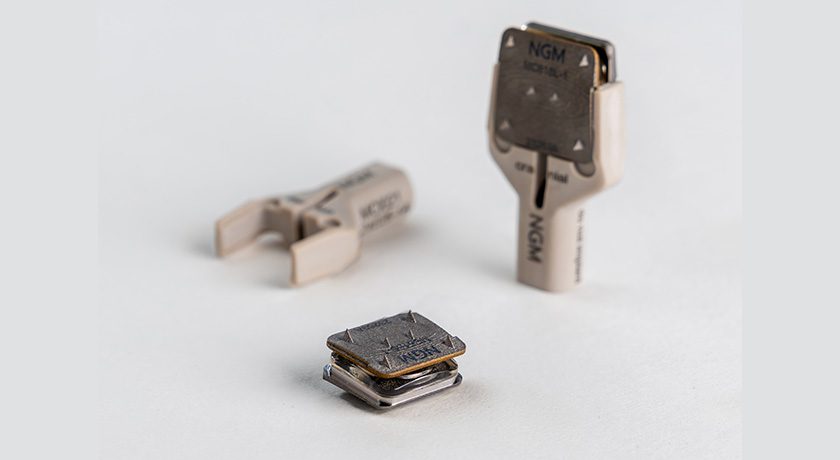

 Copy to clipboard
Copy to clipboard 
The past six months have brought compelling M&A activity, including Stryker’s planned acquisition of Wright Medical, RTI Surgical’s sale of its OEM business and ATEC’s agreement to purchase EOS imaging. However, the COVID-19 pandemic created substantial uncertainty for orthopedics and acquisition activity. Below we look at the status of these three deals in light of unprecedented challenges to companies’ operating environments.
Stryker On Track to Complete Wright Medical Acquisition
Stryker’s announcement that it had reached an agreement to acquire Wright Medical dominated industry headlines in late 2019. The deal, valued at $5.4 billion, is still expected to close in 2H20. However, as we wrote at the time, uncertainty remains about how the integration will unfold. Many observers believe that Stryker will have to divest parts of its total ankle replacement portfolio to avoid anti-trust complications. Company executives have been relatively tight-lipped about the deal in the last two quarterly earnings calls, noting at the end of 2019 that the two companies remain competitors, and it would be improper to discuss any integration details.
Despite a January legal challenge to the deal filed by a shareholder, the transaction was approved by Wright shareholders in late April. In his 1Q20 remarks, Stryker CEO Kevin Lobo said that the company is proceeding with integration efforts with an anticipated close date of 3Q20. Stryker expects minimal salesforce attrition, given COVID-19’s impact on competitive hiring across the industry. Beyond this, the company made no additional comments on Wright, nor did they take questions regarding the acquisition.
Regarding Stryker’s M&A strategy beyond Wright Medical, Lobo said, “I could see that we would get back to smaller tuck-in acquisitions. We have slowed it. We have paused it. We have not turned it off. In some ways, it will allow us to have more time over target and be smarter about where we are choosing to execute on M&A opportunities.”
RTI Surgical Extends Timeline for OEM Business Sale
In January 2020, RTI made its initial move toward becoming a pure-play spine company when it announced the planned sale of its OEM business to Montagu, a European private equity firm. The months since the announcement have been tumultuous for RTI:
- February 25: RTI announces postponement of the stockholder meeting for the sale of its OEM business.
- March 9: The company reschedules the postponed stockholder meeting for May 13, with an expected deal close of 1H20.
- March 16: RTI announces the delay of its 10-K filing as an SEC investigation spurs an internal company investigation into contractual agreements with OEM customers with regards to accounting practices, financial reporting and internal controls.
- March 20: Due to its delayed 10-K, RTI falls out of compliance for its NASDAQ listing.
- April 27: RTI amends its agreement with Montague. The cash purchase price is reduced from $480 million to $440 million, a $10 million security rollover is eliminated, and the transaction closing date is moved to August 2020.
ATEC Terminates Agreement to Acquire EOS imaging
In late April, ATEC announced that it had terminated its $122 million deal to purchase EOS imaging due to COVID-19 triggering the “Material Adverse Effect” clause of the agreement. The acquisition would have been a significant boon to ATEC’s AlphaInformatiX platform that provides capabilities in surgical planning, patient-specific implants, alignment reconciliation and other intraoperative functionalities. EOS’ installed base of 350+ imaging units would have given ATEC access to numerous academic centers, nine of the top 10 U.S. hospitals, and a renewed international presence. ATEC intends to continue pursuing strategic partnerships with EOS imaging.
Future Acquisitions
We expect that most orthopedic companies will be too preoccupied with their COVID-19 response to think about acquisition integrations in the coming year. There is a possibility that well-positioned companies could make acquisitions to gain access to immediate revenue streams or seek deals in niche markets. For example, last week, Conventus Orthopaedics signed a definitive agreement to acquire Flower Orthopedics to gain access to its sterile-packaged anatomic foot/ankle implants, allografts and diabetic wound care solutions for orthopedic surgeons and podiatrists. As certainty prevails from COVID-19, cash-rich companies will pick up M&A investments.
Mike Evers is ORTHOWORLD’s Digital Content Strategist.
The past six months have brought compelling M&A activity, including Stryker’s planned acquisition of Wright Medical, RTI Surgical’s sale of its OEM business and ATEC’s agreement to purchase EOS imaging. However, the COVID-19 pandemic created substantial uncertainty for orthopedics and acquisition activity. Below we look at the status of these...
The past six months have brought compelling M&A activity, including Stryker’s planned acquisition of Wright Medical, RTI Surgical’s sale of its OEM business and ATEC’s agreement to purchase EOS imaging. However, the COVID-19 pandemic created substantial uncertainty for orthopedics and acquisition activity. Below we look at the status of these three deals in light of unprecedented challenges to companies’ operating environments.
Stryker On Track to Complete Wright Medical Acquisition
Stryker’s announcement that it had reached an agreement to acquire Wright Medical dominated industry headlines in late 2019. The deal, valued at $5.4 billion, is still expected to close in 2H20. However, as we wrote at the time, uncertainty remains about how the integration will unfold. Many observers believe that Stryker will have to divest parts of its total ankle replacement portfolio to avoid anti-trust complications. Company executives have been relatively tight-lipped about the deal in the last two quarterly earnings calls, noting at the end of 2019 that the two companies remain competitors, and it would be improper to discuss any integration details.
Despite a January legal challenge to the deal filed by a shareholder, the transaction was approved by Wright shareholders in late April. In his 1Q20 remarks, Stryker CEO Kevin Lobo said that the company is proceeding with integration efforts with an anticipated close date of 3Q20. Stryker expects minimal salesforce attrition, given COVID-19’s impact on competitive hiring across the industry. Beyond this, the company made no additional comments on Wright, nor did they take questions regarding the acquisition.
Regarding Stryker’s M&A strategy beyond Wright Medical, Lobo said, “I could see that we would get back to smaller tuck-in acquisitions. We have slowed it. We have paused it. We have not turned it off. In some ways, it will allow us to have more time over target and be smarter about where we are choosing to execute on M&A opportunities.”
RTI Surgical Extends Timeline for OEM Business Sale
In January 2020, RTI made its initial move toward becoming a pure-play spine company when it announced the planned sale of its OEM business to Montagu, a European private equity firm. The months since the announcement have been tumultuous for RTI:
- February 25: RTI announces postponement of the stockholder meeting for the sale of its OEM business.
- March 9: The company reschedules the postponed stockholder meeting for May 13, with an expected deal close of 1H20.
- March 16: RTI announces the delay of its 10-K filing as an SEC investigation spurs an internal company investigation into contractual agreements with OEM customers with regards to accounting practices, financial reporting and internal controls.
- March 20: Due to its delayed 10-K, RTI falls out of compliance for its NASDAQ listing.
- April 27: RTI amends its agreement with Montague. The cash purchase price is reduced from $480 million to $440 million, a $10 million security rollover is eliminated, and the transaction closing date is moved to August 2020.
ATEC Terminates Agreement to Acquire EOS imaging
In late April, ATEC announced that it had terminated its $122 million deal to purchase EOS imaging due to COVID-19 triggering the “Material Adverse Effect” clause of the agreement. The acquisition would have been a significant boon to ATEC’s AlphaInformatiX platform that provides capabilities in surgical planning, patient-specific implants, alignment reconciliation and other intraoperative functionalities. EOS’ installed base of 350+ imaging units would have given ATEC access to numerous academic centers, nine of the top 10 U.S. hospitals, and a renewed international presence. ATEC intends to continue pursuing strategic partnerships with EOS imaging.
Future Acquisitions
We expect that most orthopedic companies will be too preoccupied with their COVID-19 response to think about acquisition integrations in the coming year. There is a possibility that well-positioned companies could make acquisitions to gain access to immediate revenue streams or seek deals in niche markets. For example, last week, Conventus Orthopaedics signed a definitive agreement to acquire Flower Orthopedics to gain access to its sterile-packaged anatomic foot/ankle implants, allografts and diabetic wound care solutions for orthopedic surgeons and podiatrists. As certainty prevails from COVID-19, cash-rich companies will pick up M&A investments.
Mike Evers is ORTHOWORLD’s Digital Content Strategist.

You are out of free articles for this month
Subscribe as a Guest for $0 and unlock a total of 5 articles per month.
You are out of five articles for this month
Subscribe as an Executive Member for access to unlimited articles, THE ORTHOPAEDIC INDUSTRY ANNUAL REPORT and more.
ME
Mike Evers is a Senior Market Analyst and writer with over 15 years of experience in the medical industry, spanning cardiac rhythm management, ER coding and billing, and orthopedics. He joined ORTHOWORLD in 2018, where he provides market analysis and editorial coverage.







